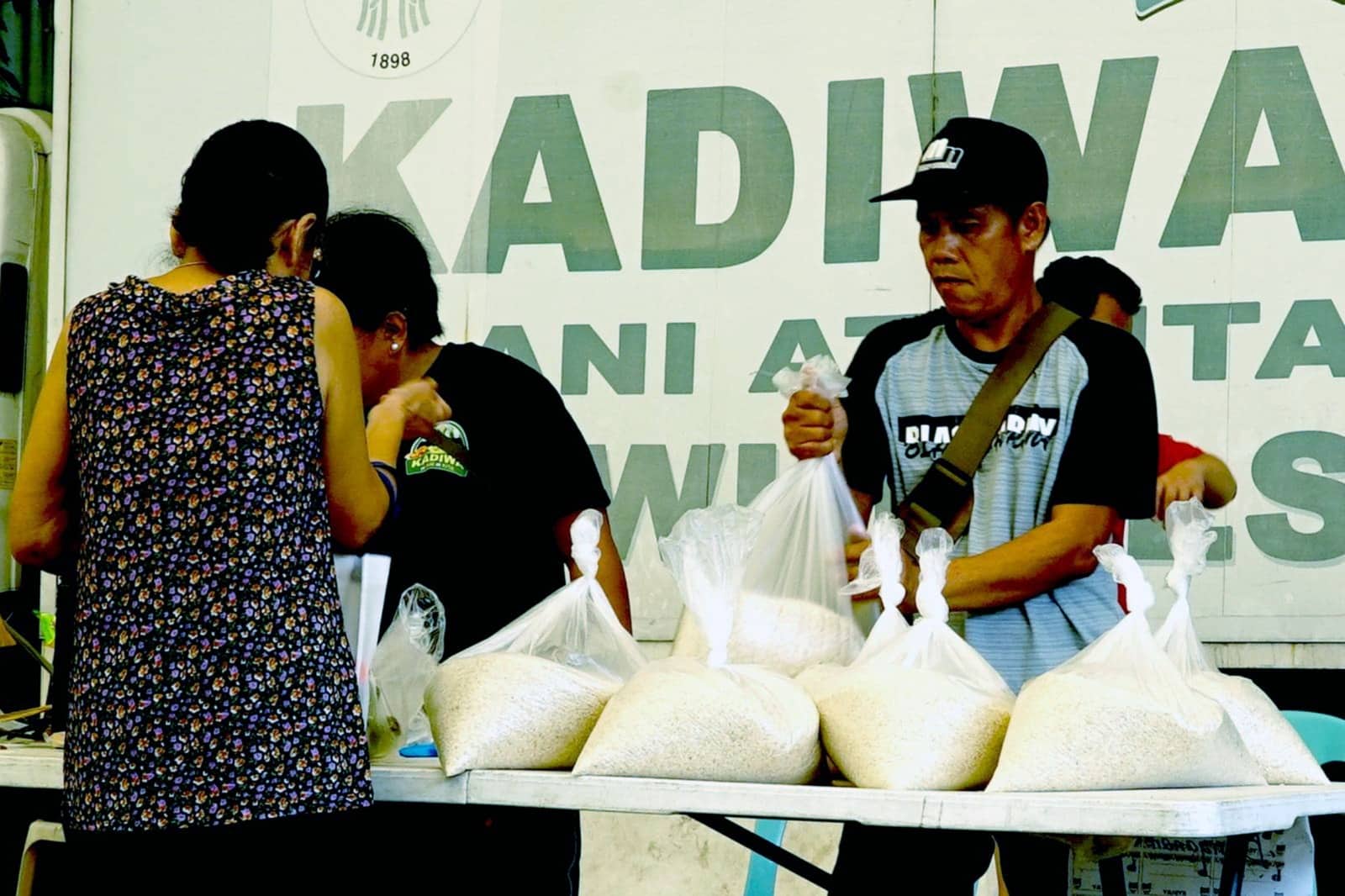
The Department of Agriculture sells rice at P29 per kilo at the Bureau of Animal and Industry’s Kadiwa in Visayas Avenue, Quezon City in this file photo taken on July 19, 2024. Philippine News Agency file photo
MANILA, Philippines – Twenty more Kadiwa stores in Metro Manila and Laguna are set to open this weekend, the Department of Agriculture (DA) announced on Thursday.
To be launched on Friday, the new farm-to-consumer outlets were the result of the DA’s partnership with the Pantao Fisherfolks Consumers Cooperative and SRT Alcala Multi-purpose Cooperative, an approach to expedite the program’s expansion.
“This partnership demonstrates the Filipino ‘bayanihan’ spirit where the government and private sector collaborate, a tie-up that is crucial in the implementation of government programs,” DA Assistant Secretary Genevieve Velicaria-Guevarra said in a statement.
The DA also announced that unlike existing Kadiwa stores operating for two to three days a week, the new cooperative-led stores will operate for seven days a week.
The new outlets will be located in the following:
Caloocan City
- Ocean Fish, Brgy. 8
- Brgy. 28, Zone 3 – Site 1
- Brgy. 28, Zone 3 – Site 2
Malabon City
- BFAR – Longos
- 18 Tuazon, Brgy. Potrero, Malabon
- Kalt Alles, Brgy. Potrero, Malabon
Mandaluyong City
- Brgy. Daang Bakal
- Brgy. Hulo
- Brgy. Addition Hills
Marikina City
- BFCT Bagsakan, No. 1 Marcos Highway
- Brgy. Tanong
- Fortune Barangay Hall, Brgy. Fortune
- Concepcion Uno Barangay Hall, Brgy. Concepcion Uno
Navotas City
- Kalt Alles – NFPC-PFDA, NBBN
Pasig City
- Lot 12, Blk. 4 R. Thaddeus St., Marietta Romeo Village, Brgy. Sta. Lucia, Pasig City
Quezon City
- Sauyo, Quezon City
- No 4 Geronimo, Philand Drive, Brgy. Pasong Tamo, Quezon City
- Zamora St. cor. A. Bonifacio, Brgy Sta. Lucia, Quezon City
- Alley 4, Bulacan St., Brgy. Payatas B, Quezon City
Calamba City, Laguna
- Brgy. Canlubang
The P43 rice under the department’s Rice-for-All program and the P29 rice for senior citizens, solo parents, and people with disabilities will be available in these stores.
After the launch of these cooperative-led Kadiwa outlets, the DA eyes establishing 10 to 15 new stores every month until the end of the year.
The Kadiwa ng Pangulo program is the flagship food accessibility initiative introduced by President Ferdinand Marcos Jr. when he was still concurrently Agriculture secretary.